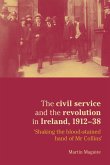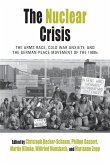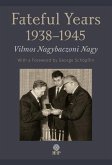The "Weekend Crisis" during May 1938 presents a classic case-study in the strategy pre-emption. Czechoslovak intelligence was convinced that Hitler was on the verge of ordering the invasion of their country four months before the infamous Munich Conference. In response, President Eduard Benes ordered reservists to man the frontiers expecting war. The Nazi offensive never came. Did Hitler really plan to attack Prague in May 1938? Today, the lessons of the "Weekend Crisis" are all the more important. Following 9/11 the United States adopted a strategy of national defence based on pre-emption already applied in Iraq despite significant global opposition. The threat of terrorism combined with weapons of mass destruction means that Washington cannot risk waiting again to be attacked. It must strike first when a potentially catastrophic threat has been identified. Yet, what standard must our leaders apply when identifying and profiling such a threat? The "Weekend Crisis" of May 1938: Analyzing an Unsolved Mystery in Czechoslovakia--Nazi Germany Relations attempts to answer precisely that question by evaluating the decision-making of Benes. Was the Czechoslovak leader simply suffering from "bad nerves" when he ordered the reserve call-up?








